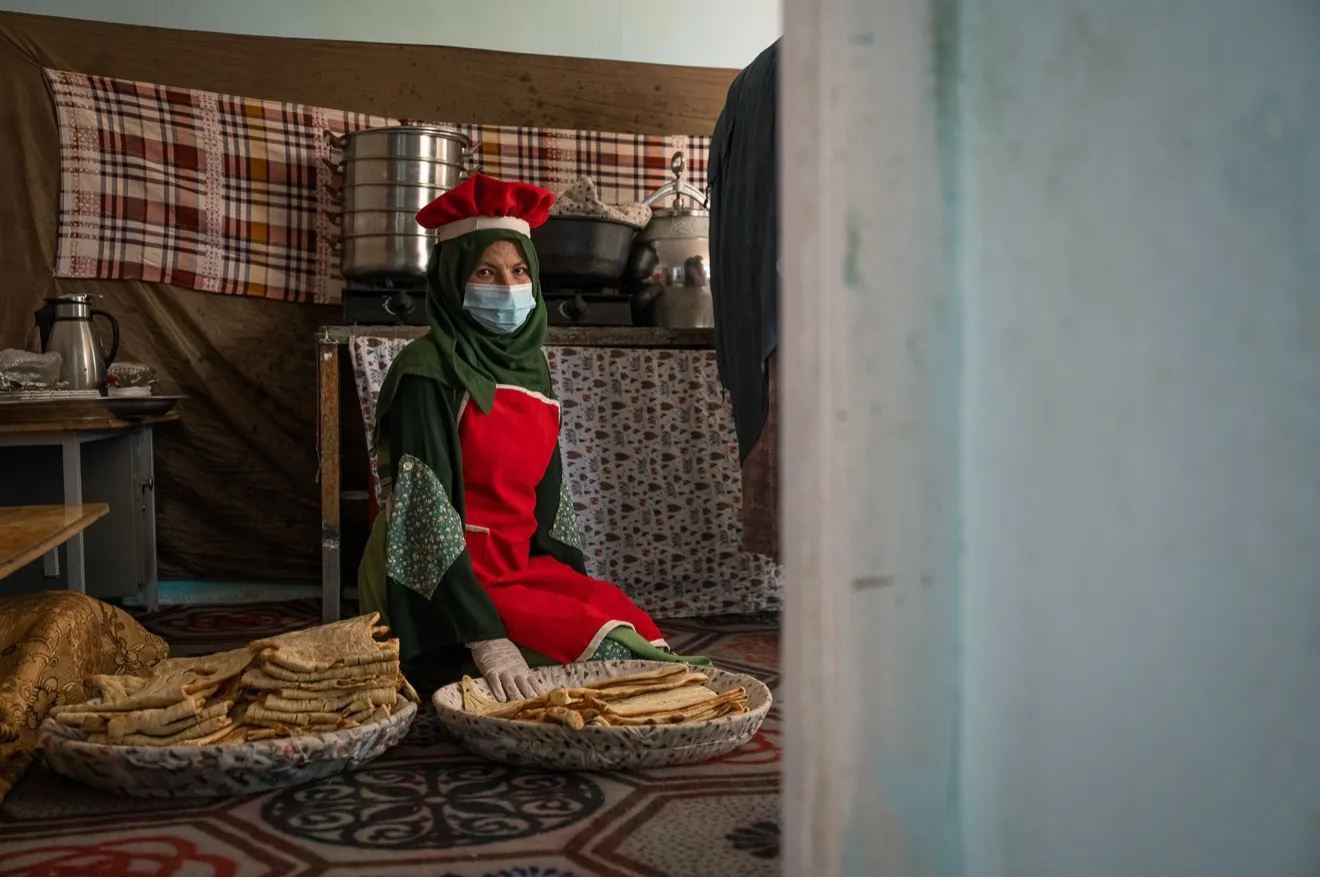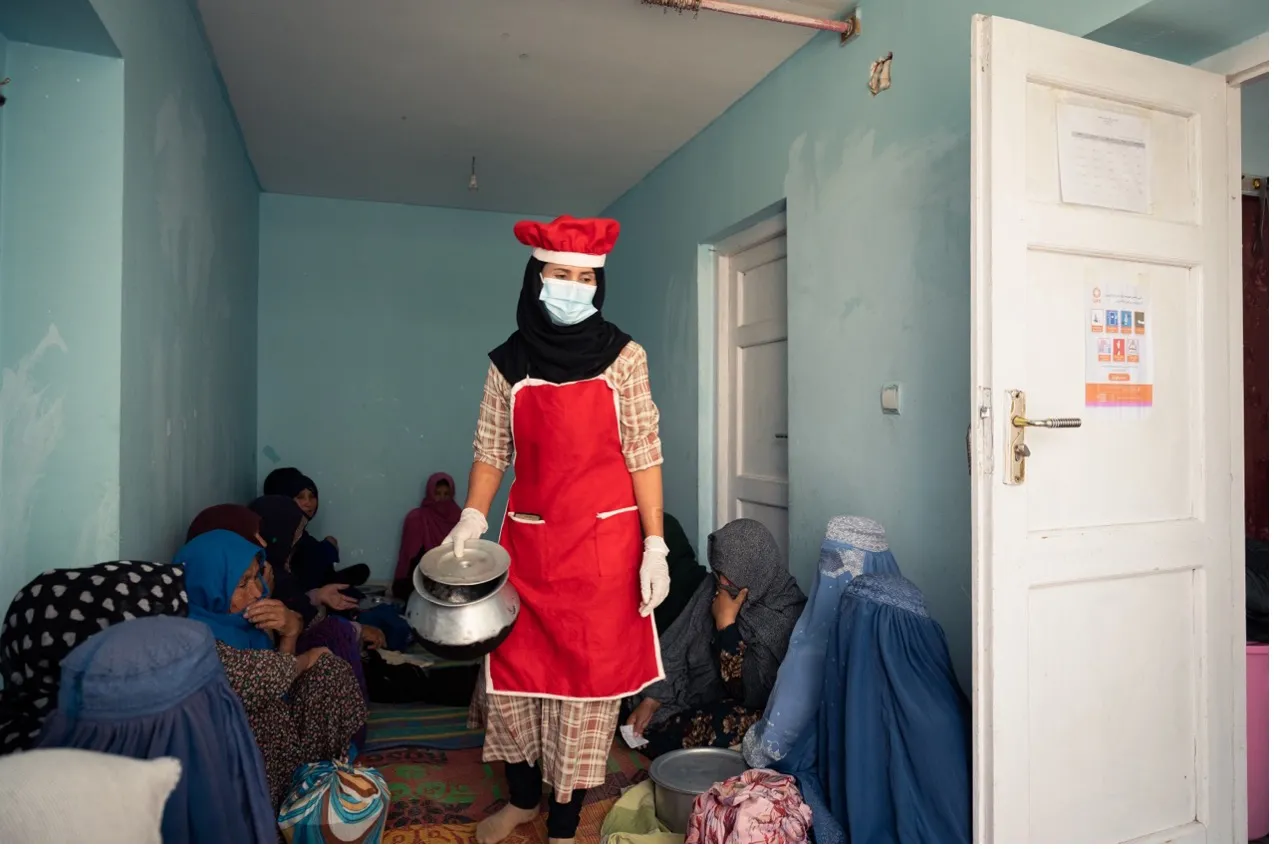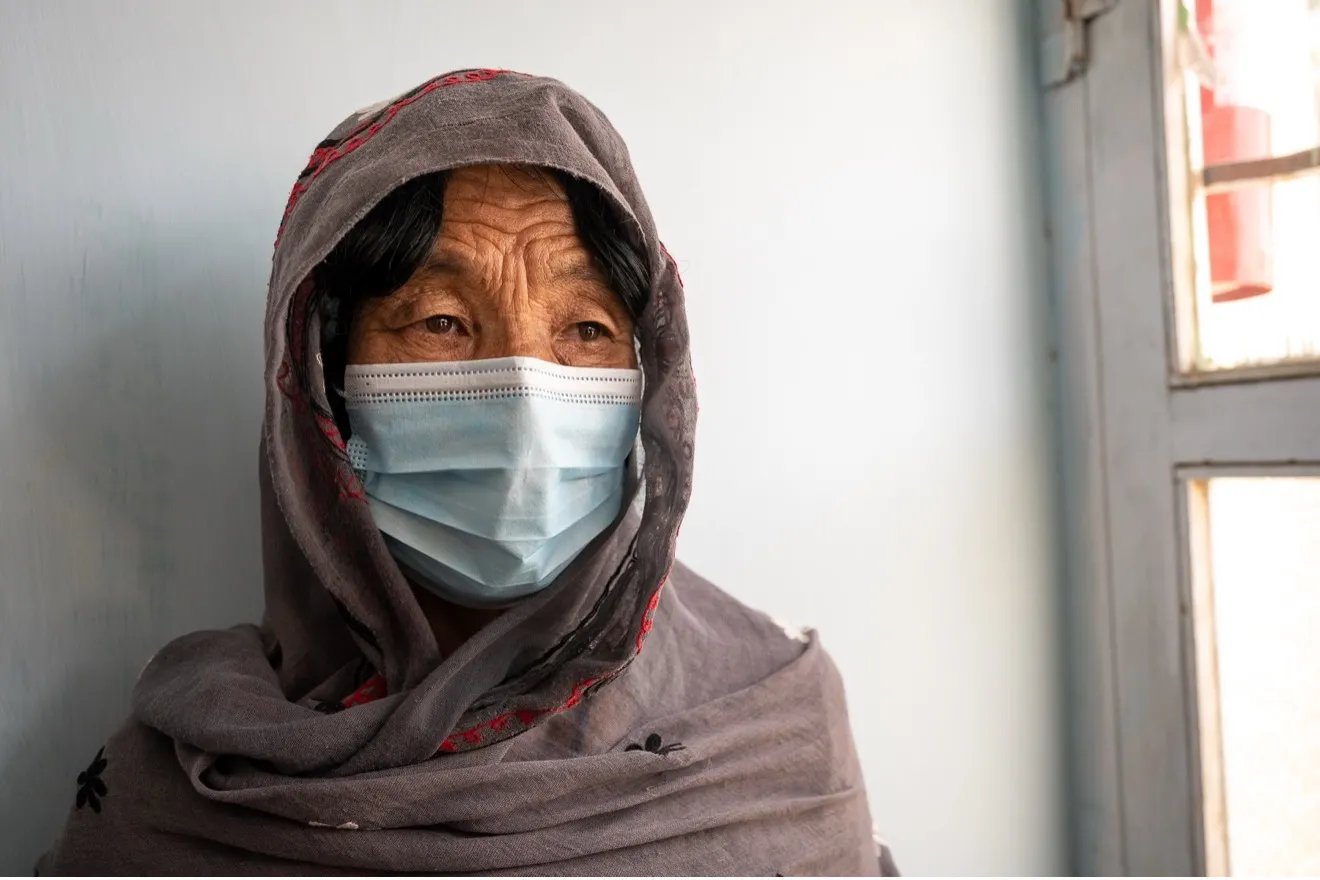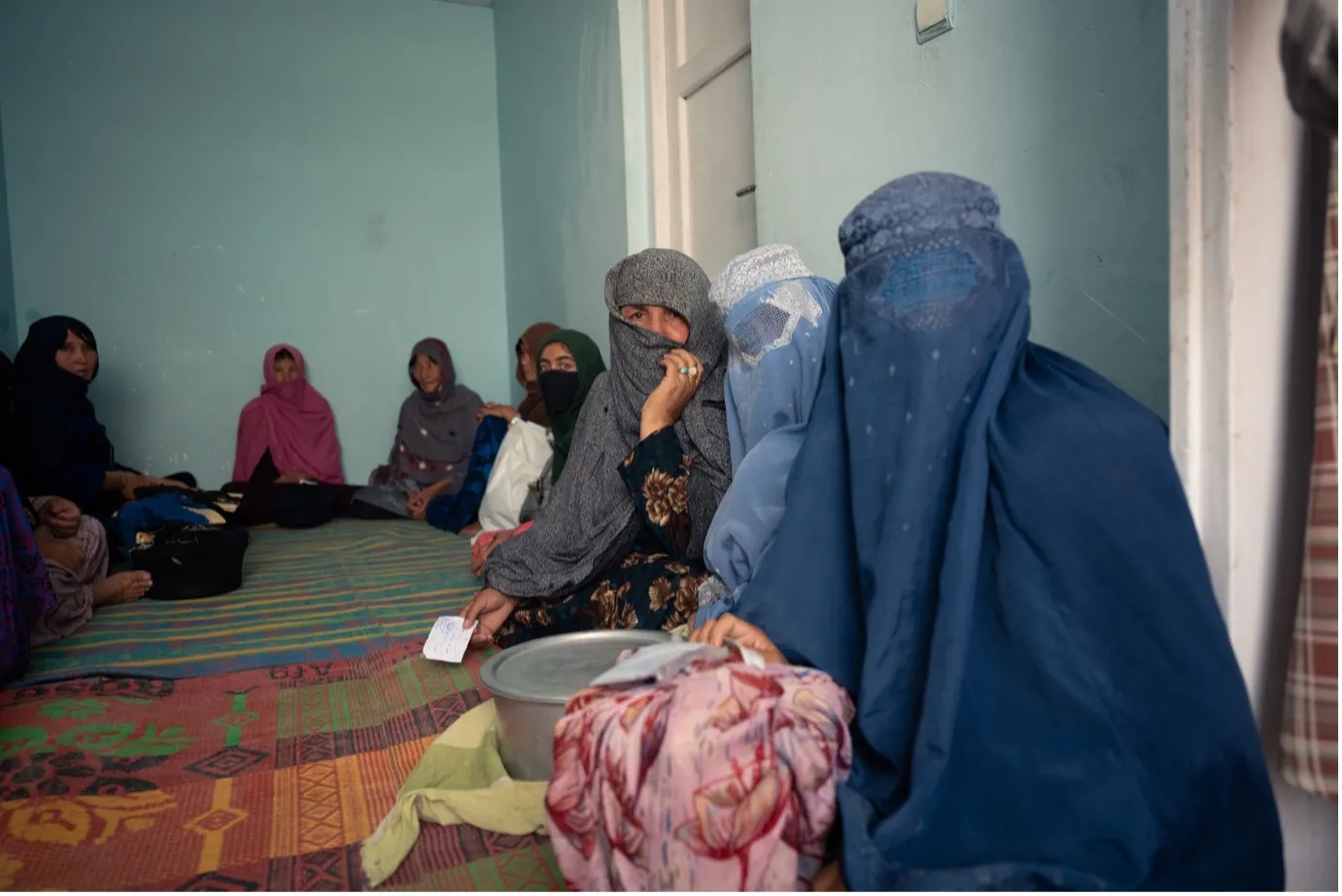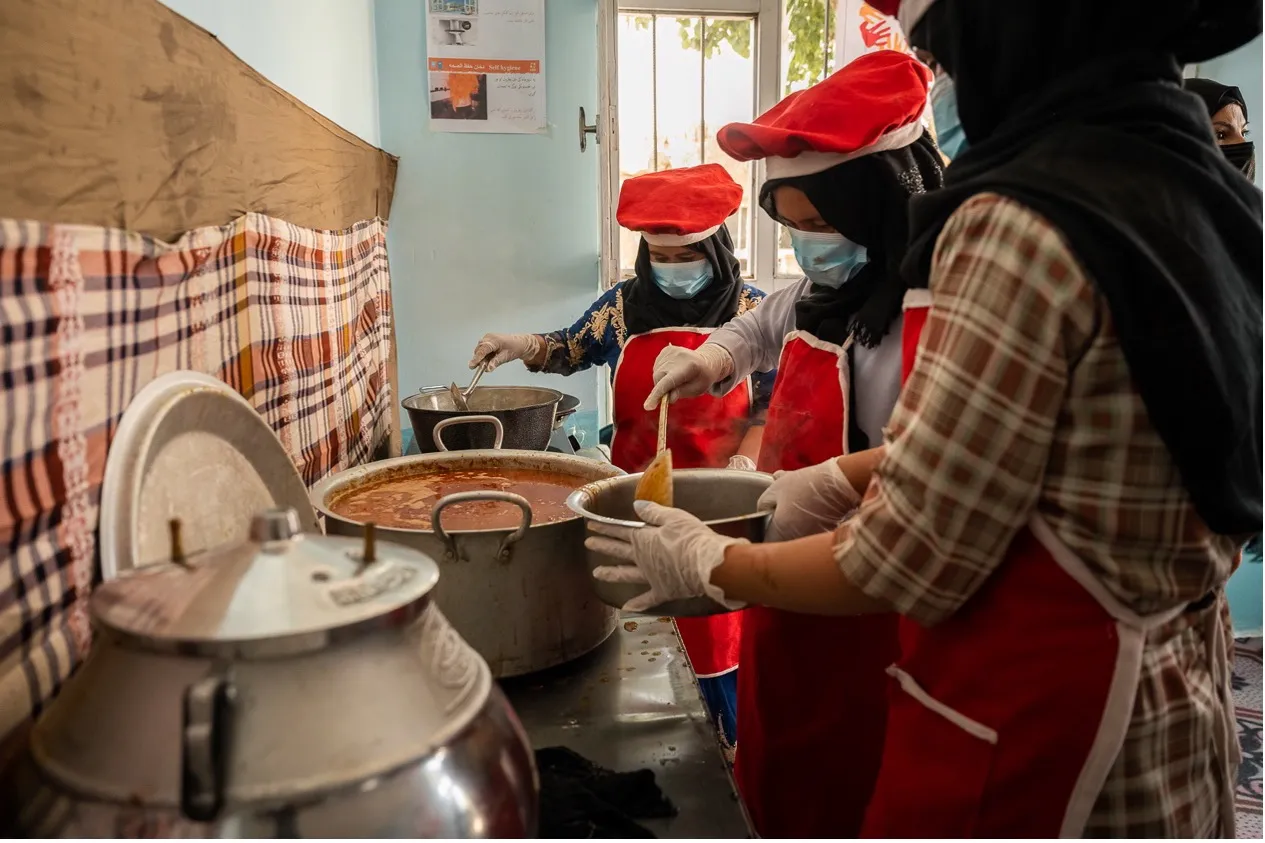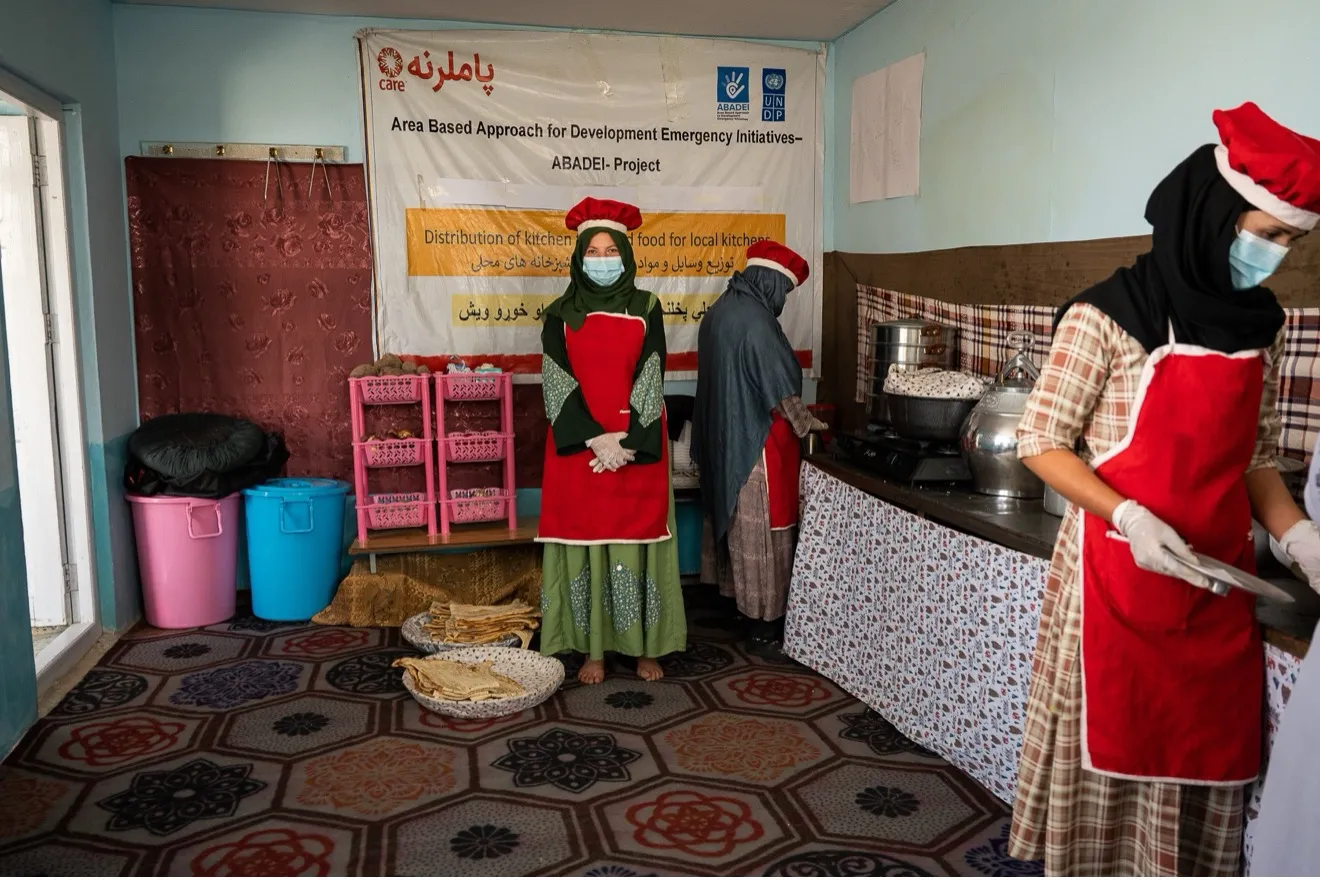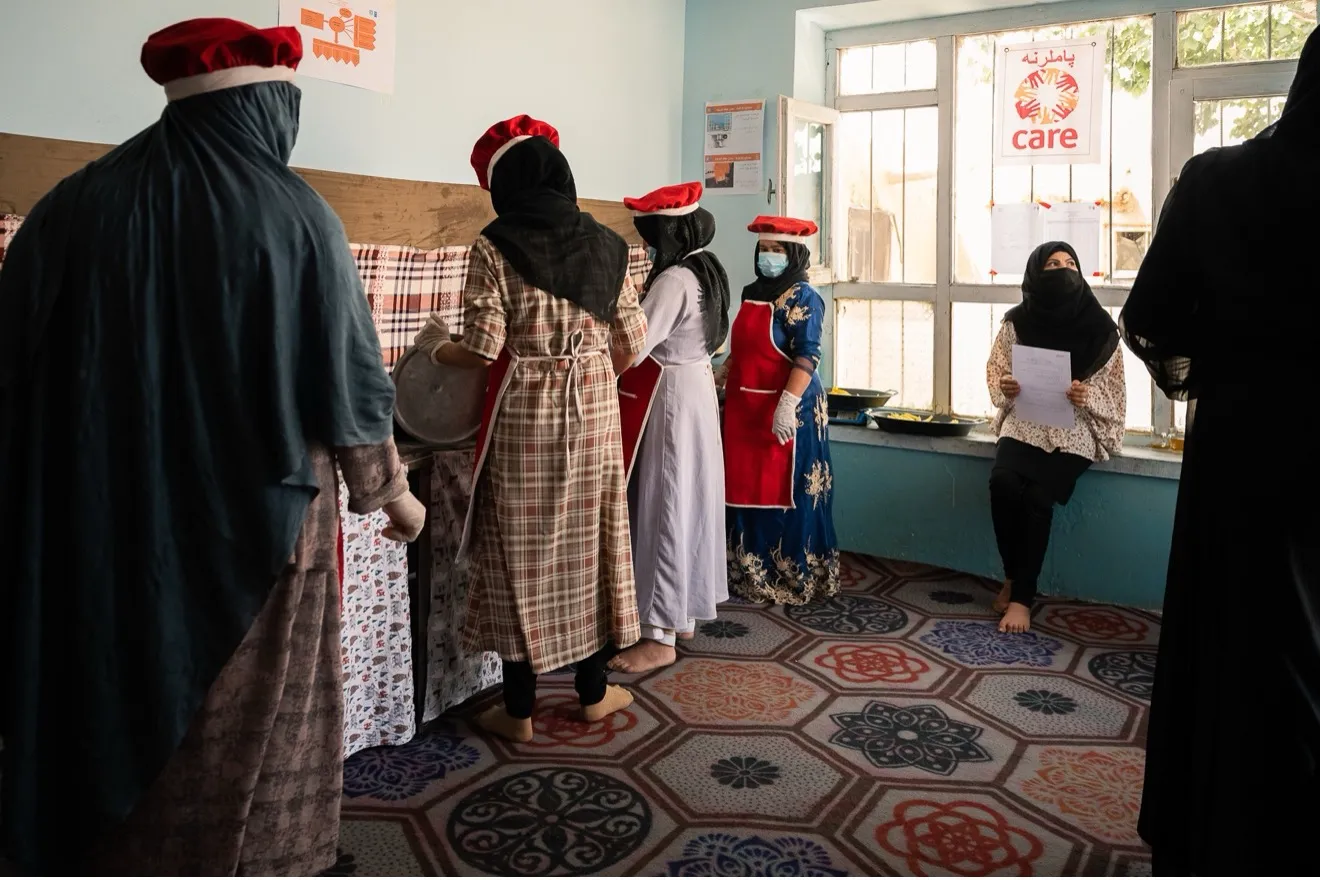For over four decades, Afghanistan has experienced consistent conflict, and today, more than two years since the regime change, it remains one of the most dangerous and crisis-ridden countries in the world.
Women and children continue to bear the brunt of what the International Rescue Committee and other international groups have been described as one of the world’s worst humanitarian crises, communities here feel the need for humanitarian aid more than ever.
For the residents of the Tawhid Abad village of Ghanzi, CARE has been a lifeline during crises, providing families with what they told me is one of the greatest gifts: these daily meals provided to them at no cost.
The meal program, led by CARE, is called “Community Kitchen.” The cooks are community-based, and they prepare meals for their neighbors six days a week. These meals feed school children, drivers, shopkeepers, and families.

